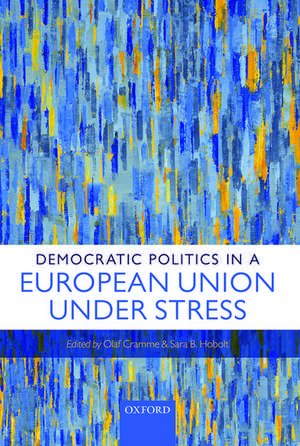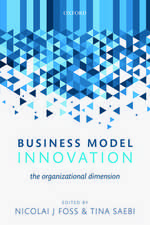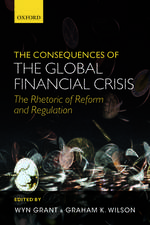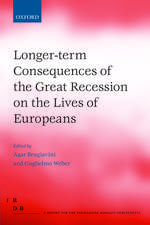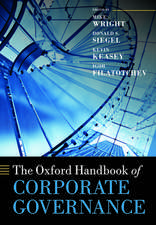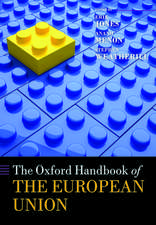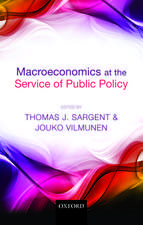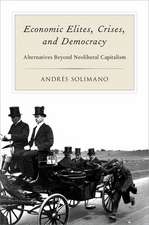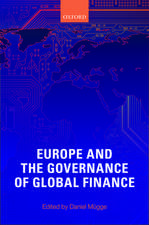Democratic Politics in a European Union Under Stress
Editat de Olaf Cramme, Sara B. Hobolten Limba Engleză Hardback – 19 noi 2014
Preț: 494.39 lei
Preț vechi: 706.66 lei
-30% Nou
Puncte Express: 742
Preț estimativ în valută:
94.60€ • 98.78$ • 78.12£
94.60€ • 98.78$ • 78.12£
Carte tipărită la comandă
Livrare economică 04-10 aprilie
Preluare comenzi: 021 569.72.76
Specificații
ISBN-13: 9780198724483
ISBN-10: 0198724489
Pagini: 272
Dimensiuni: 166 x 244 x 23 mm
Greutate: 0.59 kg
Editura: Oxford University Press
Colecția OUP Oxford
Locul publicării:Oxford, United Kingdom
ISBN-10: 0198724489
Pagini: 272
Dimensiuni: 166 x 244 x 23 mm
Greutate: 0.59 kg
Editura: Oxford University Press
Colecția OUP Oxford
Locul publicării:Oxford, United Kingdom
Recenzii
In this major new study, Pedersen portrays the League as an awkward and conflicted undertaking that nonetheless put in motion the decline of imperialism and the spread of national self- determination.
Cramme and Hobolt have brought together a brilliant group of EU scholars to offer beyond-the-headlines diagnosis and recommendations on the state of the Unionâs democratic health. Contribution after contribution, the book dazzles the reader with its combination of conceptual innovations, scholarly depth and practical relevance. Thankfully, the collective wisdom distilled by the editors still gives us hope for democratic recovery in Europe.
We used to have policies without politics in the European Union, and this was seen as a serious handicap. The economic crisis has now made it all much more political, but can Europe cope? Trust is low, the economics flawed and the politics often toxic. And perhaps, the problem goes much deeper and also extends beyond the boundaries of the EU: a crisis of the global economic order? This collection of essays on democratic politics in an EU under stress offers a plurality of views of leading experts and extremely valuable insights: a must read.
This volume addresses the key question of the Unionâs current predicament: will the Euro crisis strengthen the weak political foundations of the EU or will it ultimately undermine them? Approaching the question from different perspectives, the authors analyse central concerns: the unreflective projection of legitimacy and democracy from the national to the EU level; citizensâ ambiguous attitudes towards the EU; and the response capacity of national and European institutions. As such, the individual contributions offer an excellent evaluation of the state of the post-crisis EU and insightful ideas about its future.
Cramme and Hobolt have brought together a brilliant group of EU scholars to offer beyond-the-headlines diagnosis and recommendations on the state of the Unionâs democratic health. Contribution after contribution, the book dazzles the reader with its combination of conceptual innovations, scholarly depth and practical relevance. Thankfully, the collective wisdom distilled by the editors still gives us hope for democratic recovery in Europe.
We used to have policies without politics in the European Union, and this was seen as a serious handicap. The economic crisis has now made it all much more political, but can Europe cope? Trust is low, the economics flawed and the politics often toxic. And perhaps, the problem goes much deeper and also extends beyond the boundaries of the EU: a crisis of the global economic order? This collection of essays on democratic politics in an EU under stress offers a plurality of views of leading experts and extremely valuable insights: a must read.
This volume addresses the key question of the Unionâs current predicament: will the Euro crisis strengthen the weak political foundations of the EU or will it ultimately undermine them? Approaching the question from different perspectives, the authors analyse central concerns: the unreflective projection of legitimacy and democracy from the national to the EU level; citizensâ ambiguous attitudes towards the EU; and the response capacity of national and European institutions. As such, the individual contributions offer an excellent evaluation of the state of the post-crisis EU and insightful ideas about its future.
Notă biografică
Olaf Cramme is former Director of Policy Network and a Visiting Fellow at the European Institute of the London School of Economics.Sara B. Hobolt is the Sutherland Chair in European Institutions and Professor at the European Institute of the London School of Economics and Political Science. London School of Economics and Political Science.
